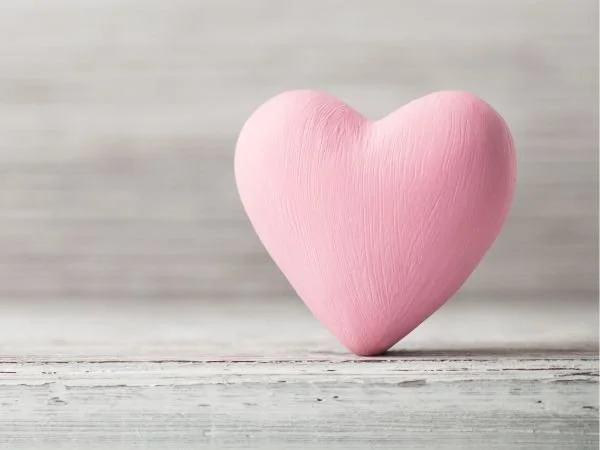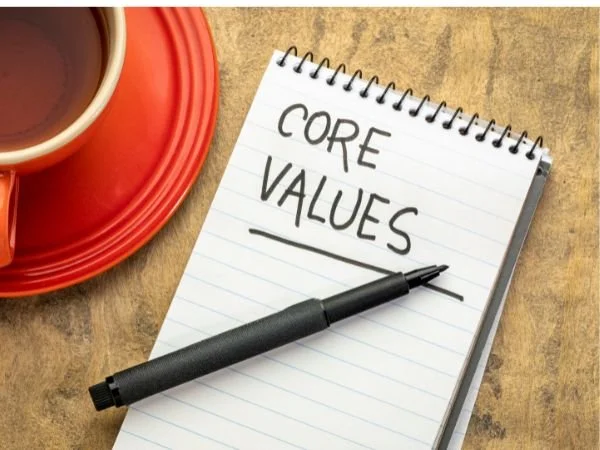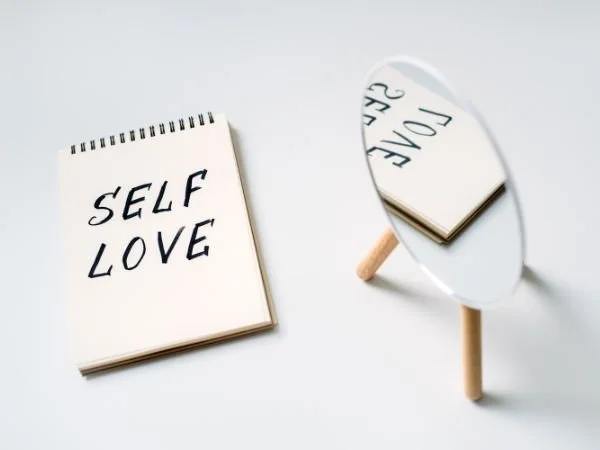59: Why Self-Compassion is Important and How to Start Being Self-Compassionate Today
Self-compassion is an important tool for not only healing trauma and heartbreak, but also for living a happy life. In my own life, I have found self-compassion to be crucial when I am feeling sad, lost, upset, and self-critical. In today’s episode, I define self-compassion, share self-compassion practices, and discuss acclaimed author Kristen Neff’s three elements of self-compassion. In today’s episode, I define self-compassion, share self-compassion practices, and discuss acclaimed author Kristen Neff’s three elements of self-compassion.
This post contains affiliate links to some of my favorite tools and resources. As an Amazon Associate, I earn from qualifying purchases. Full terms & conditions here.
Book Recommendation 📚
It Wasn’t Your Fault: Freeing Yourself from the Shame of Childhood Abuse with the Power of Self-Compassion by Beverly Engel
Self-Compassion: The Proven Power of Being Kind to Yourself by Dr. Kristin Neff
How to Do the Work by Dr. Nicole LePera
Journal Prompts 🖊️
More on Self-Compassion 📑
Timestamps ⏱️
Introduction - 0:00
What is Self-Compassion? - 11:32
Kristen Neff’s 3 Elements of Self-Compassion - 12:32
Why is Self-Compassion important for the Healing Journey? - 18:18
How to practice Self-Compassion? - 21:03
Have you followed and left a review for New View Advice?
Let me know what you think of the podcast! Podcast followers and ratings help bring new listeners to the show, as well as help me to continue creating content. So if you enjoyed the show, I’d love to ask you to follow and leave a rating on your podcasting platform by:
Head to New View Advice on Apple or Spotify
Click Follow on your podcasting platform
Scroll down (or when promoted) click the 5 star rating!
-
This podcast was transcribed by an AI tool called Otter. Please forgive any typos or errors.
Amanda Durocher [intro] 0:00
Welcome to New View advice. I'm your host Amanda Dozier and I invite you to join me here each week as I offer advice on how to move through whatever problem or trauma is holding you back from living life to the fullest. Let's get started. Hi, beautiful souls. My name is Amanda DeRosa. And this is new VA advice. If you're new here, this is a healing centered advice podcast where I offer guidance for the healing journey. I don't believe I have all the answers you seek, I believe you have all the answers, you just may need a new view and a little help along the way. Thank you for joining me for today's episode. Today, we're going to be talking about self compassion, and why self compassion is so important for not only the healing journey, but also for living life and for living life to the fullest and being able to live a happy and healthy life. I also thought this was a great topic for this week. Because currently in my own life, I have been practicing what I preach, and I have really been leaning into self compassion. And I've been seeing how hard it can be for me at times to be self compassionate with myself. For the past two months, I have been struggling with health issues. And this chapter has been extremely difficult. It's been stressful, and it's not what I expected. I don't know about you, but 2023 has not been what I expected it to be. And because of this, I have been leaning into self compassion, and seeing why self compassion is so important when healing. I talk about self compassion a lot on the podcast. And for me, self compassion did not come easily. For a very, very, very long time, I was very self critical. I had low self esteem. And I was very, very hard on myself. And these aren't patterns that went away overnight. It was by practicing self compassion, because that's what it is. It's a practice. And as you know, with anything that we practice, we're not perfect the first time and we're not always perfect, right? Every time you go to the gym, and you do a new exercise or you go for a run, it's not the same your body doesn't show up the same every time. It's same with when you sit down to meditation. Some days, it's easy, some days, it's not. And that's part of life, it's not supposed to be easy. It's about showing up and practicing anyways. And it's about learning from those moments when it's harder, and also really being grateful for those moments that it's easy. And self compassion is the same way. Self Compassion is something that we practice with ourselves, I find that the world we live in has taught us all to be really, really self critical, and has taught us all to find what's wrong with us, and also what's wrong with others, I see a world that judges one another. And I see a lot of hatred out there in the world, social media can be a scary place, especially the comment section, which I can't help but always read. And I'm always so surprised to see all the negative talk the way people talk to each other. And the way that people talk about themselves breaks my heart. And I believe one of the cures to the judgments we feel about ourselves and also about others. And note when you have a judgment about somebody else, look in the mirror, because oftentimes that's a judgment you have about yourself as well. And the cure, I believe is to heal our hearts, and also to brace self compassion. So for me, I've always been really self critical. I've had low self esteem and low self worth. And this all stemmed from childhood, I picked up these beliefs about myself and about the world in childhood. And this did with the trauma experienced and I survived in my childhood, and also did with the way I was parented and did with the way that kids interacted in school. It's not so simple, why we're all so hard on ourselves, or whatever it may be, maybe you're not hard on yourself, but you're hard on everyone else around you. And so maybe for you, it's like you had How can you be more compassionate with others. But I think it's so easy for us to be caught in shame spirals where we're self critical of ourselves, and we parade ourselves. And I think this can happen with any sort of trauma or experiences in childhood. I know that I talked about self compassion in all my one on one sessions, and I work with people who have been cheated on I work with people who have experienced sexual assault. I work with people who have cheated in relationships, I work with people who have experienced childhood emotional abuse, childhood physical abuse, childhood sexual abuse, I work with people who have experienced grief, the loss of loved ones. And we always come back to talking about how can we be more compassionate with ourselves as we're healing? How can we be kinder to ourself, everyone loves to judge themselves. Everyone loves to make up stories about why they're so bad or about why they're not enough about why they're not worthy. And the cure to this, the way that you can begin to open your heart and to love yourself is to be kind to yourself is to be compassionate with yourself. What many of us don't realize is that many people are living with a lot of pain. And I want you to think of a animal that you would pick up at a adoption center that has had a really tough life, and that animal was abused by other humans, and that animal may react to humans, it may not want to be touched, it may not want to be near humans, it may want to be left alone, it may not want to eat. It has all these effects from the harm of humans. And I want you to take that example, and look at other humans from that perspective, that many of us are wounded animals, many of us are living with heart ache, heartbreak, trauma, abuse in our bodies, these experiences need to be processed, looked at, and felt. And that takes time. I'm still on my healing journey. As I've been dealing with these physical health issues, it's been interesting for me to witness how much trauma wanted to be looked at. And so as I've had to spend many days just lying in bed, I have been given the chance to witness and sit with things I was avoiding. And a lot of the things I've been sitting with did with interactions with friends in my youth. And I could see how the trauma I experienced I was sexually assaulted in my childhood, and also in my teens, for anyone who's new here. And I can see how that really impacted so many of my relationships. And I also realized recently that a death I experienced at a young age had much more of an impact on me, then I ever really allowed myself to see because I was shamed at a young age for how much grief I felt. And nobody taught me how to process that grief. So I bottled it up. And it had a lot of negative effects in my life, that I was not taught how to process that grief. And that's no judgment to the adults in my life at the time. Many people don't know how to process their grief. So how can you help a little girl process her grief if you don't know how to process your grief. But these experiences that I've been spending so much time with, and has been extremely painful, has reminded me the importance of self compassion, because there were so many days in the past two months, I just wanted to work I just wanted to create, I love creating, it's one of my healing tools. And I wasn't able to get out of bed. And that was really hard for me because I just had to sit with all the feelings. And what that meant was I had to be really kind to myself about where I was and my capabilities. I kept trying to be so hard on myself, I kept trying to like, go go go, I would be so frustrated with myself, I'd be frustrated with my partner because he was doing fine. And I wasn't. And I was projecting and I was angry. And I had all these feelings. And I couldn't ignore them like I usually can. And I couldn't pretend they weren't there, I had to sit with them. And I had to be really kind to myself about all the healing my body's been going through for the past few months, it's been healing on a physical, emotional and mental level. And that wasn't easy. And it's so hard because when we're healing, people can't see that. And so it's not viewed as progress. There were so many days I judged myself, and would say you didn't do anything today, even though what I was doing was healing. And healing is something and healing is important. But it was interesting for me to witness myself and see how hard I was being on myself for where I was. And I share this because I think so many people are hard on themselves when they're healing. And they think they should, quote unquote, be doing more, I think it's important for us to realize that healing is important, and you are doing something and you don't also always have to be doing something, we put so many shoulds on our plate, we have such a long to do list. We all want to change the world right now. It's step by step. And some days, the steps going to be just sit there. And also healing takes an immense amount of energy. I don't know if we talk about this enough, I don't know if I've talked about this enough. Healing takes an immense amount of energy, there are going to be some days you just want to sleep. And that's okay. That's your body healing itself. You do not have to be go go go all the time, we actually are not designed as humans to be go go go all the time. We're not designed as humans to be in as much contact with one another as we are. And we need to allow ourselves to rest and to care for ourselves and not to judge ourselves. Because what I found throughout this journey was the more I judged myself, when I rested, the more stressed I became, and then the more rest I needed. It wasn't until I was able to remove those judgments that I was able to fully rest and I was able to come back out of fight or flight out of that stress response into relaxation, that then I would see progress. But every day that I just stressed over not doing anything was not actually helpful for my body. So then it needed more days. And it would show me that it needed more days. And for me, I judged myself and I also felt like I was being judged by the world. I felt like my partner was judging me. I felt like other people were judging me like, What is she doing with her life? Like she's not doing anything. And those are all stories I tell myself because for a long time I've identified my worth with how much I get done in the day. Oh, I was really productive today. That was a good day. And some days that's true. But some days it can be a really good day when you don't do anything. It's a good day to me when you listen to your heart. And you do as your heart's asking you to do I share that because these past two months I've really been leaning into self compassion and learning that self compassion isn't always Easy, but it has been so healing from my heart on the healing journey. And I think it's so important for everyone to learn how to be compassionate with themselves and others. And so with that, let's jump on in.
Amanda Durocher [teaching] 10:10
So let's start with what is self compassion. Kristin Neff, who is the self compassion expert. If you Google self compassion, you're often going to find Kristin Neff sname. I like to think of her as she is to self compassion. What Brene Brown is to shame and vulnerability. She is really a pioneer in discussing self compassion. And her work is really helpful in learning more about self compassion. So she defined self compassion as self compassion is the ability to notice our own suffering, and to be moved by it, making us want to actively do something to alleviate our own suffering. So to me, this means that being self compassionate is being kind to yourself. It's catching those self critical or self punishing thoughts and offering yourself kindness, offering yourself support, encouragement, love, grace, patients care and gentleness. It's noticing that you're suffering and doing something, as the definition said to alleviate it. So in that moment, it's giving yourself a hug. It's giving yourself those words of kindness, it's giving yourself understanding. So many times we judge ourselves instead of stopping and just understanding why we're feeling the way we are, or so many times the feelings we're feeling are so difficult that we try to shove them down.
Amanda Durocher [What is Self-Compassion?] 11:32
Self Compassion is the same as compassion. For others. It's just directed at ourselves. This may seem obvious, but many of us have an easier time being compassionate to others than with ourselves. A great quote about self compassion I love is our sorrows and wounds are healed only when we touch them with compassion. I believe that it's impossible to heal from trauma from childhood abuse from cheating from sexual assault from whatever your heart may be healing, heartbreak, grief, it's impossible to heal without self compassion. I think it's a key pillar of the healing journey. I think that we have to offer ourselves grace and understanding and that gentleness, and we have to notice our own suffering, we have to see that we were suffering, and we have to give ourselves that space to move through it. So many people are trying to shove down their feelings. And it's not until we feel those feelings, we give it space. And we honor ourselves and we hold ourselves that we're able to heal and process, the pain we've experienced.
Amanda Durocher [Kristen Neff’s 3 Elements of Self-Compassion] 12:32
So Kristin Neff has identified three elements of self compassion. And these are mindfulness, self kindness, and common humanity. So start with mindfulness, mindfulness is recognizing what is going on in the present moment. And being aware of the present. Mindfulness helps us to face the truth of our experience, even when it's uncomfortable and unpleasant, rather than avoid the painful thoughts and emotions. So it's through mindfulness that we begin to see that we're in pain. As I mentioned, so many people are trying to run away from their pain, that's something I often do through work. I don't always sit with the feelings that are arising, I just power through. And so these past two months, I've really had to be mindful of what's with me, because when I've spent days just lying down, unable to leave my bed, I would see all the feelings that I had been ignoring. And I had to honor them. And I would have memories arise from my childhood, really painful memories. And there were days I would choose to check out and turn the TV on when that happened. But oftentimes, I was woken up in the middle of the night with the same memory and I had to sit with it then. Or there were days that I was mindful right then and there. And it was like, Oh, wow, I didn't know that was still there. And I would take the space to sit with it, to see what that experience taught me, and what belief I picked up or what feelings were there. And through that mindful practice, I was able to be present with what wanted to arise within me. The second element of self compassion is self kindness. So this is choosing to soothe and comfort ourselves. When external life circumstances are challenging and feel difficult. So instead of criticizing ourselves for being imperfect, we offer ourselves warmth, love and self acceptance. Self kindness is so important when healing. Many of us were not offered compassion and kindness, when we experienced really hard things in our past, or we were offered it by others, but we felt unworthy of it, so it didn't sink in. And what we need to learn to do is to be kind to ourselves, to offer ourselves that kindness. So let's take the example of being cheated on. And in the moment that you found out you were cheated on maybe your partner or the person who cheated on you reacted to you in a painful way. Maybe this person said some mean things or denied it. And in that moment, they didn't offer you kindness as your healing you will find that it's important for you to offer yourself kindness and I find that a lot of people have been cheated on have to revisit the moment they were cheated on. because it was a trauma, it was a shock, it sticks in the body because it was such a shocking and painful experience. And in that moment, so many people's worlds are flipped upside down, and they're betrayed and their trust is broken. And so many feelings arise at once. So so many people have been cheated on have to revisit that moment. And as you revisit that moment, it's important to offer yourself that self kindness that maybe you didn't receive in that moment, or maybe you were unable to give yourself maybe you went straight to criticizing yourself, it's important to offer yourself that kindness. It's the same with survivors of sexual assault, many of us have to revisit the moment we were assaulted. It's a very painful experience. And some of us have memories of it. Some of us don't. Some of us have blurs, some of us have full pictures. But you will find that it's important to continually revisit that memory if it continues to arise for you. Because again, that trauma is stuck in the body, it is not arising to punish you it is arising because your body is asking you to look at it, to process it to move it so you can be free of it. But it does not feel like that in the moment. It feels extremely painful. There is a lot of pain, people holding their bodies, physical and also emotional. And so you may have to offer yourself that kindness that you are not offered in that moment, because many survivors of sexual assault will criticize themselves to death about what happened. And part of the healing journey is starting to be kind to yourself, and to understand that it was not your fault. What happened. The third element of self compassion is common humanity. And this is recognizing that all humans are flawed. Everyone fails. Everyone makes mistakes and experiences difficulty and it's learning to accept and forgive ourselves for our flaws. Since we are not perfect beings. We don't have to blame anybody. A healing is about accepting that the human experience is messy. The human experience is not easy. The best things in life aren't easy. And a lot of the most difficult things in life sure as hell weren't easy. And I think so many of us think that life is supposed to be easier. Life is supposed to be fair, life was never meant to be that way. We're all flawed. We all have a dark side, we all have a light side, we all have pain. And we all experience grief, and anger and sadness along the journey. And we all make mistakes. We all say things we didn't mean, we all do things that we wish we could take back. So recognizing that common humanity is important when being self compassionate with yourself. Because what I've noticed about self compassion in my own life is that it always arises at the end of a chapter for me, when I look back on the chapter, I always just wish I was kinder to myself over and over again, I had that happen to me again, recently, when I was reflecting on my journey with this podcast, and how much pressure I put on myself when I released it, and how I was so hard on myself. And I was doing everything by myself. Now I work with amazing people who helped me to create this podcast and to put these episodes together. But originally, it was just me. And I was doing it because I loved it. But I didn't know what I was doing. I was so hard on myself. And I looked back at her the beautiful angel of myself who decided to start this podcast, and I just have such compassion for myself. I think she's so cool. And I never felt cool at the time. But I think it's so cool that when I was at that point in my life I chose to serve, I chose to show up to what was being asked of me. And I just wish I was kinder to myself about it and that I had trusted a little deeper that everything would work out exactly as it was supposed to.
Amanda Durocher [what does self-compassion look like?] 18:18
So what does self compassion look like? What self compassion may look like in your life is being gentle with yourself. It's saying to yourself, this is hard right now, or this is a painful experience. It's honoring and seeing and noticing and accepting the pain or the hardship or the experience that you're currently in. It's giving yourself space, it's giving yourself rest. It's giving yourself time off. It's asking yourself, What can I do to comfort myself in this moment, if you're somebody who's experienced grief, the death of a loved one recently, self compassion is allowing yourself to move through the grieving process and not judging yourself for it. Anyone moving through the grieving process, we move through the grieving process with anything we really process. So if you were cheated on if you've cheated, if you're at the end of a relationship, but you're going through a friendship breakup, if you've experienced sexual assault, you're healing a relationship with your parents, we all move through grief. And self compassion is allowing yourself to feel your feelings. And it's understanding that grief and all emotions come in waves. So one day you may be on the top of a mountain. And the next day, you may be at the bottom of a valley, and neither are wrong. That's going back to that common humanity that is just part of the human experience. There is no need to judge yourself. And I've heard some people say that they think that if they're self compassionate, then they're not pushing themselves to be a better person. And I just want to debunk this because as I mentioned with my example, earlier that the more I stressed and the more I tried to push, push, push, the slower I was actually going and the more rest I ended up needing. But the days that I just allowed myself to fully rest to calm my nervous system and to be with my own heart. I was able to move more of that trauma move that Pain and to heal my body and the physical health issues I've been having. So self compassion may seem counterintuitive to some, but it's actually the more space we allow ourselves, the more we don't judge ourselves, the more we're able to move forward in a good way, I'm seeing as say, you're somebody who's trying to just push forward, but you judge yourself, and you're not giving yourself the space to feel your feelings, you're not giving yourself the space to process, you're not being mindful and sitting with whatever needs to arise. I'm seeing it as say, there's a river, and there's all these stones in the river, you're jumping from the left to the right, and then you're jumping backwards, and then you're jumping to the right again, and you're moving forward, but also moving backward, and you're moving very slowly, because you're moving all over the place. Where if you allow yourself to be self compassionate, if you allow yourself to be mindful and self kind, and you recognize the common humanity of it, if you recognize that you're human, then you're able to just walk a straight line through the river, and you're not jumping side to side, you're not finagling your way through life, you're able to step forward on a straight path. I hope that visual makes sense to somebody out there.
Amanda Durocher [why is self-compassion important for the healing journey?] 21:03
So why is self compassion so important for the healing journey, the healing journey is long, and self compassion is key. Many of you may find that you're still healing from things that you wish you had already finished healing from. And having self compassion as more things arise will assist you in continuing to heal, grow and love yourself. So self compassion is so important, because as I mentioned, it's really a pillar for the healing journey. And I don't know anybody who's able to heal without self compassion. And again, it's a practice, we're not always the kindness to ourselves. And that's okay. It's continually forgiving ourselves and accepting where we're at, and offering ourselves those words of kindness when we become aware of where we may be being self critical of ourselves or others. So finally, I wanted to offer some self compassion practices, you may be wondering, how do I begin practicing self compassion. So I think that a great way to start practicing self compassion is through journaling. So I'll have journal prompts on my website to assist you with this, and you can find them at New va advice.com/ 59. But journaling is a great practice to help you to start becoming mindful. And also to help you to start seeing all the thoughts in your head, I find that sometimes if we have trouble noticing how self critical we may be, or the judgments we're having of ourselves or others, when we begin to write down the thoughts in our head, we begin to see ourselves and we begin to see how hard we can be on ourselves. I know that it's true for me, when I begin writing, a lot of times, my writing quickly shifts to self compassionate writing, because I see that the thoughts I was telling myself are not true, and that I'm being hard on myself. Another great writing exercise is to write a love letter to yourself. Write about how amazing you are right about how much you love yourself and write compassionately to yourself. Write a kind letter to yourself. And if you have trouble with this exercise, write it as if you were writing to your best friend, but it's to you, but write all the things you say about other people, because maybe you're somebody who's more compassionate with others. So write it as if you're writing to your best friend who I hope you are working towards being your own best friend on your own healing journey. Another great practice is to give yourself a day off. This is something I practice this month, a lot of days where I wasn't able to show up and do work or show up to my daily tasks, I started to view them as sick days. And I started to view them as the sick days that I didn't get as a child. I didn't get time off when I experienced some of the immense trauma I experienced in my childhood. And I didn't get sick days when somebody was mean to me. And when it really stuck or when my heart was broken by friends and boys. I didn't get sick days, even though I really needed that time to just feel my feelings. So this month, I practice really just giving myself a day off and seeing those as sick days. And some of the sick days I stayed in bed and other days I went inside and I went to the beach and I played in the ocean. But I practice acknowledging that I needed time off to mend my heart and my health and I was compassionate with myself. I know that Brene Brown has a similar practice and she calls it permission slips. So writing ourselves permission slips to do the things we want to do. I think that's also really compassionate exercise is giving yourself permission to do the things you want to do and honoring yourself and honoring your journey and where you are. Another practice for self compassion is to practice positive affirmations. When practicing affirmations I invite you to pick ones that resonate with you and this doesn't mean you'll necessarily believe it the first time you say it and how to do the work by Nicola para. She discusses how you may not believe the new affirmation or belief when you start saying it to yourself. So when you start this, but keep practicing it every day and it will help to reprogram your subconscious mind. So some of my favorites that I tell myself every day include everything is working out for me, I am safe, I am protected. I am kind to myself, and I am doing the best I can. Another practice I saw a lot of people mentioned online is to practice physical touch with yourself. So this is offering yourself hugs holding your own hand, giving yourself a butterfly hug. So that's putting your right hand on your left shoulder your left hand on your right shoulder and tapping it giving yourself that physical touch, or placing your hand on your heart and taking a few deep breaths, but allowing your own physical touch to give you comfort. So if you're somebody who notices physical touch makes you feel better, it's great to start practicing ways to give that physical touch to yourself as well. Because physical touch activates the parasympathetic nervous system, which helps us to calm down and feel safe. Another great practice for self compassion is to meditate and to find self compassion meditations. I know there's a lot of those on YouTube, and also to begin to notice your critical self talk. And you can notice this through meditation and through journaling. But bringing awareness to these critical thoughts will help you to begin inserting kind words rather than self criticism. And one book I've read about self compassion, which helped me when healing from trauma was It wasn't your fault, freeing yourself from the shame of childhood abuse with the power of self compassion. This book was really helpful for me at the beginning of my healing journey from sexual assault. And it really helped me to be kind to myself and learn how to be compassionate with myself. And I also just invite you to be gentle with yourself, be patient with yourself and be kind to yourself.
Amanda Durocher [outro] 26:06
Thank you so much for tuning into this episode today about self compassion. I hope you found it helpful. And I hope you enjoyed this conversation about self compassion. As I mentioned, I will have three journal prompts on my website to assist you with being self compassionate, and you can find those at new view advice.com/ 59 I also have more free resources on my website, I have free journal prompts, save meditations. And you can also learn how to work with me one on one, I offer one on one sessions to assist you on the healing journey and I helped to create a compassionate and safe space for us to dive deep into whatever you may be working through. Thank you so much for joining me for today's episode. As always, I hope I was able to offer you a new view on whatever you may be going through sending you all my love. See you next time.
Transcribed by https://otter.ai




































